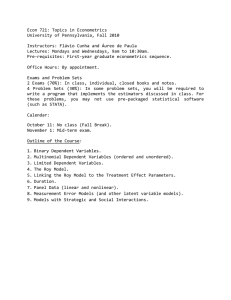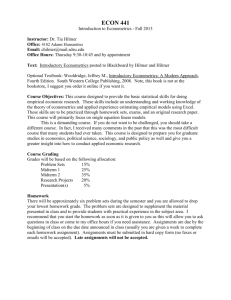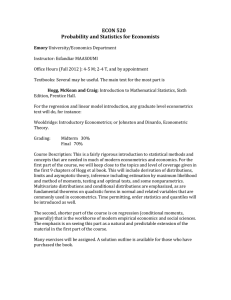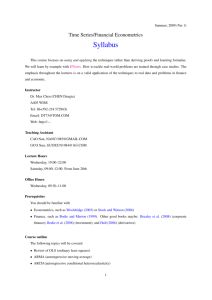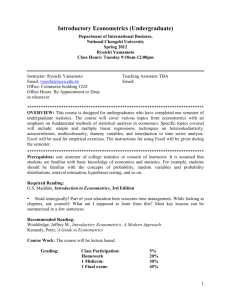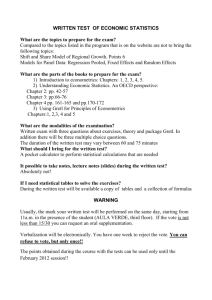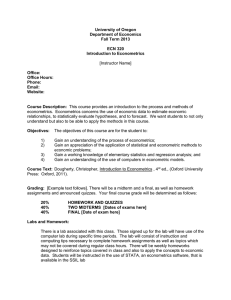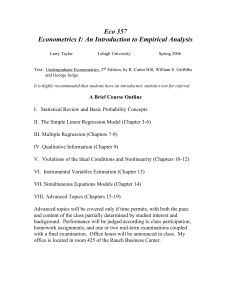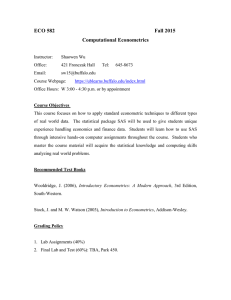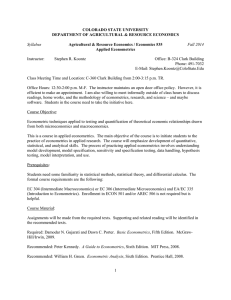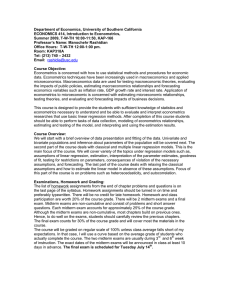View/Open
advertisement
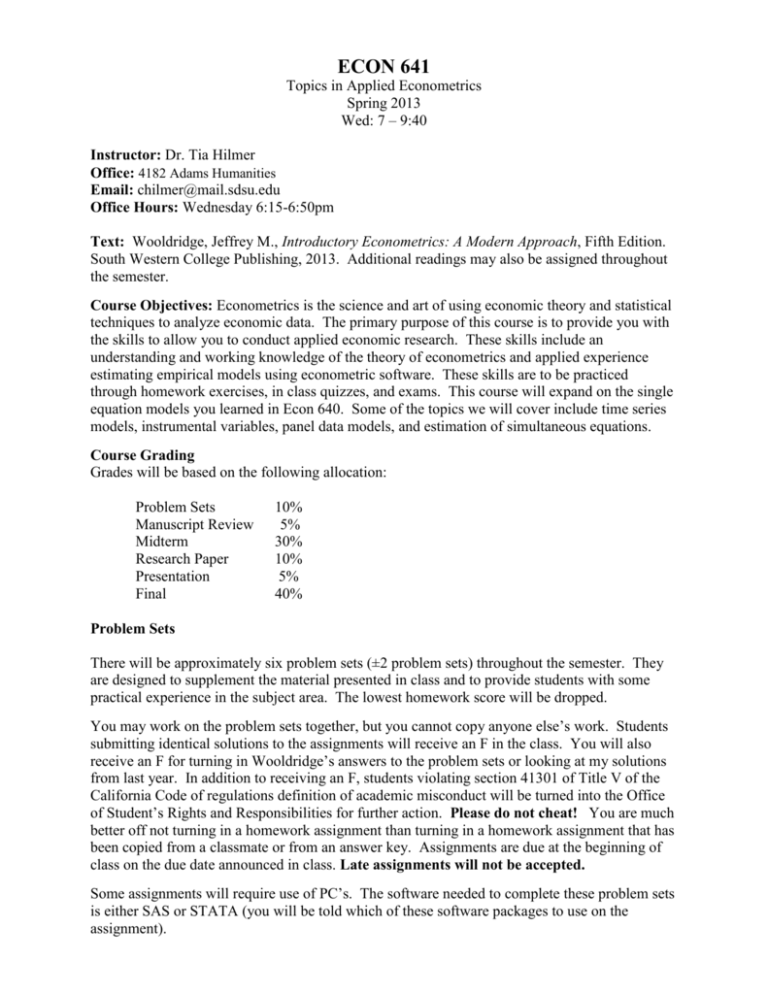
ECON 641 Topics in Applied Econometrics Spring 2013 Wed: 7 – 9:40 Instructor: Dr. Tia Hilmer Office: 4182 Adams Humanities Email: chilmer@mail.sdsu.edu Office Hours: Wednesday 6:15-6:50pm Text: Wooldridge, Jeffrey M., Introductory Econometrics: A Modern Approach, Fifth Edition. South Western College Publishing, 2013. Additional readings may also be assigned throughout the semester. Course Objectives: Econometrics is the science and art of using economic theory and statistical techniques to analyze economic data. The primary purpose of this course is to provide you with the skills to allow you to conduct applied economic research. These skills include an understanding and working knowledge of the theory of econometrics and applied experience estimating empirical models using econometric software. These skills are to be practiced through homework exercises, in class quizzes, and exams. This course will expand on the single equation models you learned in Econ 640. Some of the topics we will cover include time series models, instrumental variables, panel data models, and estimation of simultaneous equations. Course Grading Grades will be based on the following allocation: Problem Sets Manuscript Review Midterm Research Paper Presentation Final 10% 5% 30% 10% 5% 40% Problem Sets There will be approximately six problem sets (±2 problem sets) throughout the semester. They are designed to supplement the material presented in class and to provide students with some practical experience in the subject area. The lowest homework score will be dropped. You may work on the problem sets together, but you cannot copy anyone else’s work. Students submitting identical solutions to the assignments will receive an F in the class. You will also receive an F for turning in Wooldridge’s answers to the problem sets or looking at my solutions from last year. In addition to receiving an F, students violating section 41301 of Title V of the California Code of regulations definition of academic misconduct will be turned into the Office of Student’s Rights and Responsibilities for further action. Please do not cheat! You are much better off not turning in a homework assignment than turning in a homework assignment that has been copied from a classmate or from an answer key. Assignments are due at the beginning of class on the due date announced in class. Late assignments will not be accepted. Some assignments will require use of PC’s. The software needed to complete these problem sets is either SAS or STATA (you will be told which of these software packages to use on the assignment). Manuscript Reviews During the semester you will asked to write one review of one manuscript that have been submitted for publication in a journal. More details will be given in lecture. Exams and Quizzes The midterm is scheduled for Wednesday, March 20. The final exam is scheduled for Wednesday, May 15 from 7 to 9 pm. There will be no makeup exams. If you need to be excused from an exam due to an extreme emergency you must contact me ahead of time and bring a note verifying the emergency. Research Paper The research paper is a summary project which will involve collecting data, putting it into a useable computer format, and testing various hypotheses. More information is provided in a separate handout. The research paper is due during the final class, Wednesday May 8. Paper presentations will be held that day. No late papers will be accepted. Attendance and Classroom Behavior There is no attendance requirement however, you are responsible for all information presented during class and I strongly encourage your attendance. The vast majority of the students that do well in econometrics consistently come to class. If you miss a class, it is your duty to contact a classmate and get their lecture notes. Please be on time to class and do not leave early. Do not talk during class and turn off you cell phones before class begins. Students who are involved in classroom disruptions will be asked to leave the class and will be reported to the Office of Students Rights and Responsibilities. Course Outline I. Review of Multivariate Regression Analysis (Chapters 1-8) II. Time Series Analysis (Chapters 10, 11, 12) III. Panel Data (Chapters 13 and 14) IV. Instrumental Variables Estimation and Two State Least Squares (Chapter 15) V. Simultaneous Equations Models (Chapter 16) VI. Limited Dependent Variables and Sample Selection Correction (Chapter 17) VII. Advanced Time Series Topics (Chapter 18) This course outline is tentative in nature and may be modified at the instructor’s discretion.
